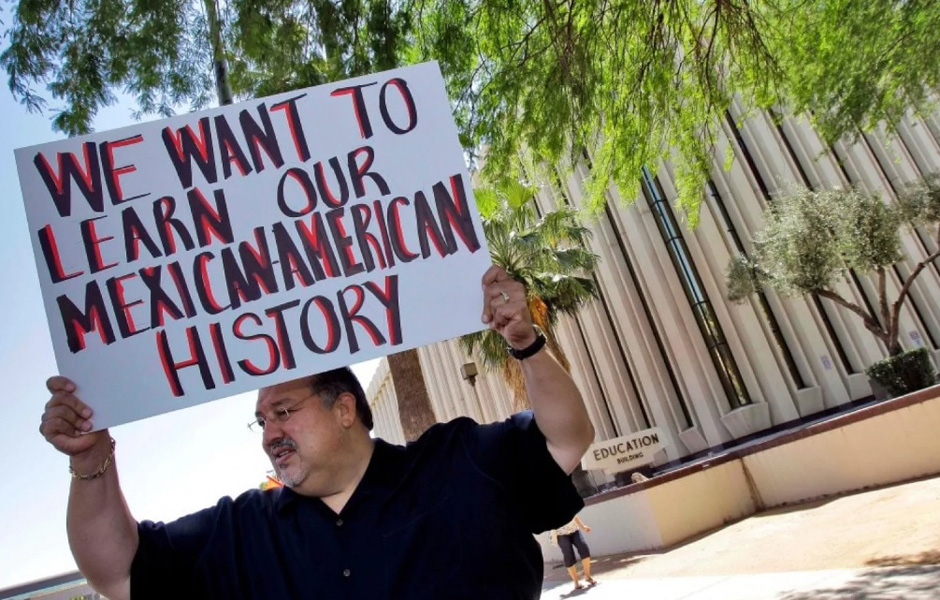
Federal judge A. Wallace Tashima permanently blocked the state of Arizona from enforcing a 2010 law banning a Mexican-American studies program in Tucson schools Dec. 26, 2017.
Previously, he had found that the state law was unconstitutional and that state officials who had pushed for it had been “motivated by racial animus.”
Writing his opinion from the U.S. District Court for the District of Arizona, Tashima said because:
“(Arizona State Statute 15-112 Prohibited courses and classes; enforcement) was enacted and enforced, not for a legitimate educational purpose, but for (i) an invidious discriminatory racial purpose, and (ii) a politically partisan purpose—to shut down the [Tucson Mexican American studies program]—in violation of the First and Fourteenth Amendments to the Constitution.”
The permanent injunction also prohibits the Superintendent of Public Instruction Diane Douglas and the state board from taking any actions to enforce the now unconstitutional law, bars state officials from reviewing or auditing classes and curriculum for the purpose of determining if it complies with the law, and prevents the state from withholding funds from districts who do not comply.
The injunction applies to the current school board, employees, and legal representatives, including the school board’s future successors.
After seven years, the state will have the option to appeal the permanent injunction.
The voluntary Mexican-American studies program started in the 1970s after Latino and African American students filed a class action desegregation lawsuit against the Tucson school district. A consent degree granted the program and found it as a way to help remedy “existing effects of past discriminatory acts or policies.”
The programs include K-12 classes in art, government, history, and literature focused on historic and contemporary Mexican American contributions and was a way for students to see “themselves or their family, or their community” in their education.
Fast forward to 2006 when Dolores Huerta, a Latina labor and civil rights leader, gave a speech at a Tucson High School and said, “Republicans hate Latinos.”
Tom Horne, Arizona’s superintendent of public instruction at the time, called Huerta’s remarks “hate speech.” Horne ordered one of his deputies to give a rebuttal speech at the school and it was met with protesting students taping their mouths, turning their backs, raising their fists, and walking out of the auditorium.
Horne launched the campaign to eliminate the Mexican-American studies program, and the state legislature passed the law in 2010.
The Tucson district did not immediately end the program, causing program opponents to step up their attacks.
Former state senator, and Horne’s state superintendent successor, John Huppenthal posted a blog comment in October 2011 that said:
“The Mexican American Studies classes use the exact same technique that Hitler used in his rise to power. In Hitler’s case it was the Sudetenland. In the Mexican American Studies case, it’s Aztlán.”
By 2012, the program was shut down by the Tucson school board after threats by the state to withhold 10 percent of the funding it gave to district’s schools—over $14 million.
In his August decision, Tashima ruled that students’ First Amendment Rights have been violated by the law because they were denied the “right to information and ideas.” He also ruled that their 14th Amendment rights were violated, too, because the decision discriminated against Latinos.
“The court concludes that plaintiffs have proven their First Amendment claim because both enactment and enforcement were motivated by racial animus,” he wrote at the time.
As part of the new decision, the state will pay the legal fees of the plaintiffs. The amount has yet to be determined.












Comments